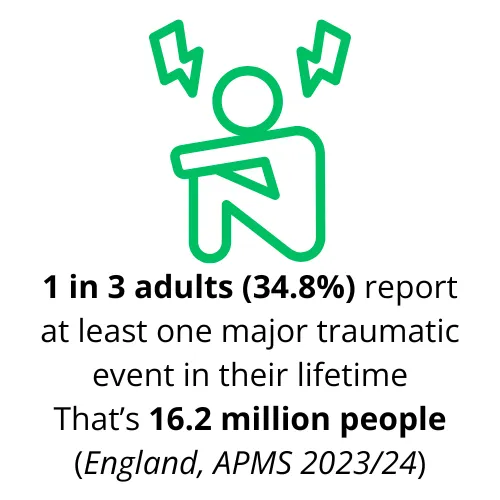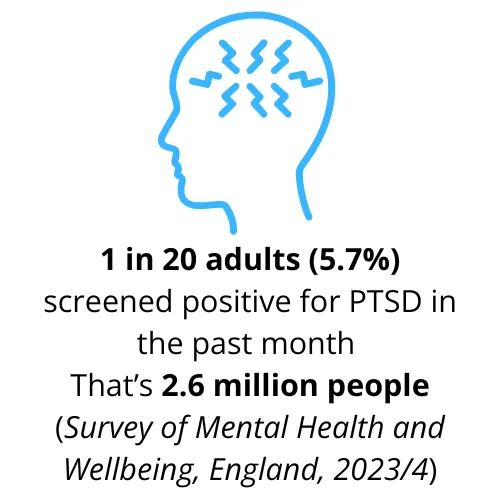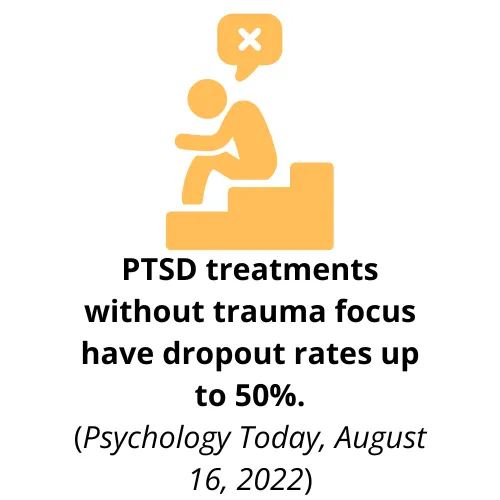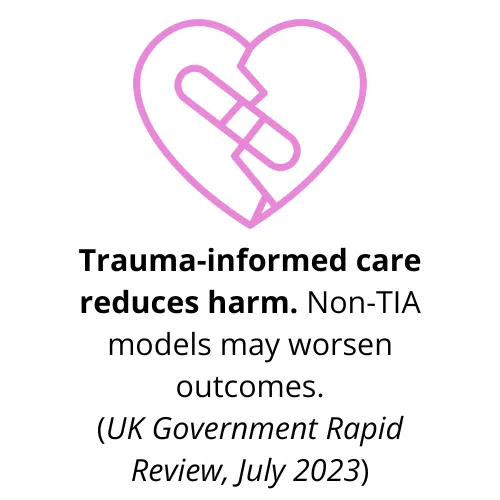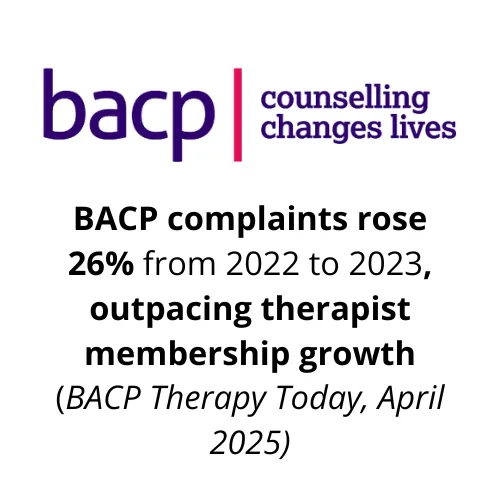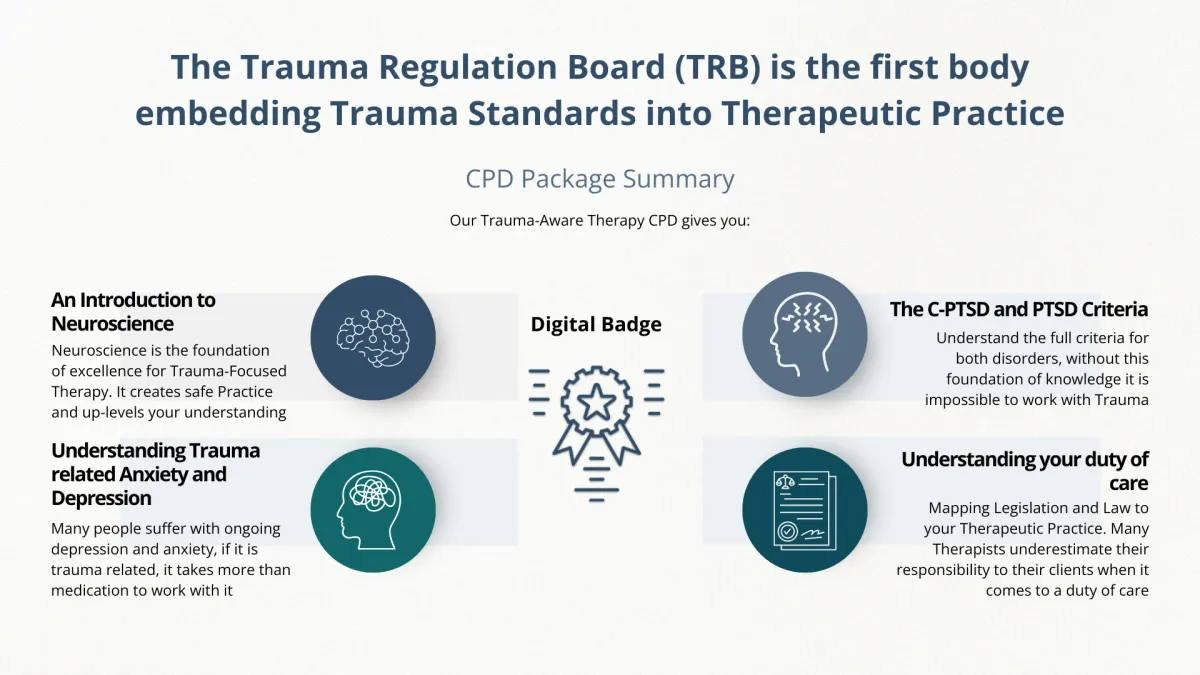Trauma-Focused Therapy
TRB Accreditation for Trauma-Competent Therapists
Therapists guide clients through trauma’s complexities and ethical terrains, demanding clinical expertise and deep emotional resilience amid vicarious exposure. Their daily work calls for empathy, trust, and rigorous self-care. TRB’s trauma-informed CPD honours this commitment - safeguarding both client safety and therapist well-being.
Empowering Recovery through Trauma-Focused Practice
The Problem
Trauma is already in your caseload
Even seemingly straightforward presentations often conceal deep-rooted trauma that demands specialised, trauma-informed responses.
In England, around 1 in 3 adults in England report having experienced at least one traumatic event
(Mental Health Foundation – The impact of traumatic events on mental health)
5.7 percent of adults screened positive for PTSD in the past month (1 in 20), while only around 25 percent of those individuals were receiving any form of psychological therapy - many without trauma-specific approaches (Adult Psychiatric Morbidity Survey: Survey of Mental Health and Wellbeing, England, 2023/24)
Trauma is pervasive across therapeutic caseloads, yet many clients never access specialist, trauma-focused care. This gap erodes trust, fuels dropout, and leaves safeguarding needs unmet. Without a unified trauma-informed framework, therapists shoulder uncontained vicarious trauma alone, risking burnout, ethical missteps, and compromised client outcomes.
Legal & Regulatory Obligations
Your Duty Under Law and Regulation
Trauma-Informed Therapy Is a Legal and Ethical Mandate for Practitioners:
Human Rights Act 1998 (Article 8) → Clients have a right to psychological integrity. Revisiting trauma without containment or specialist framing may breach this right
Care Act 2014 → Safeguarding duties include recognising trauma as a care need. Therapists must promote wellbeing and avoid retraumatisation
Mental Health Act 1983 (as amended) → Requires least restrictive interventions. Generic talking therapy may be contraindicated for PTSD
Professional Codes (BACP Ethical Framework) → Therapists must uphold a duty of competence and avoid harm under professional ethical standards
→ Requires all care to be tailored to individual needs - mandating recognition of psychological trauma in care planning
Failure to act → Breach of Statutory and Regulatory duties
The TRB Solution: Accreditation That Protects You
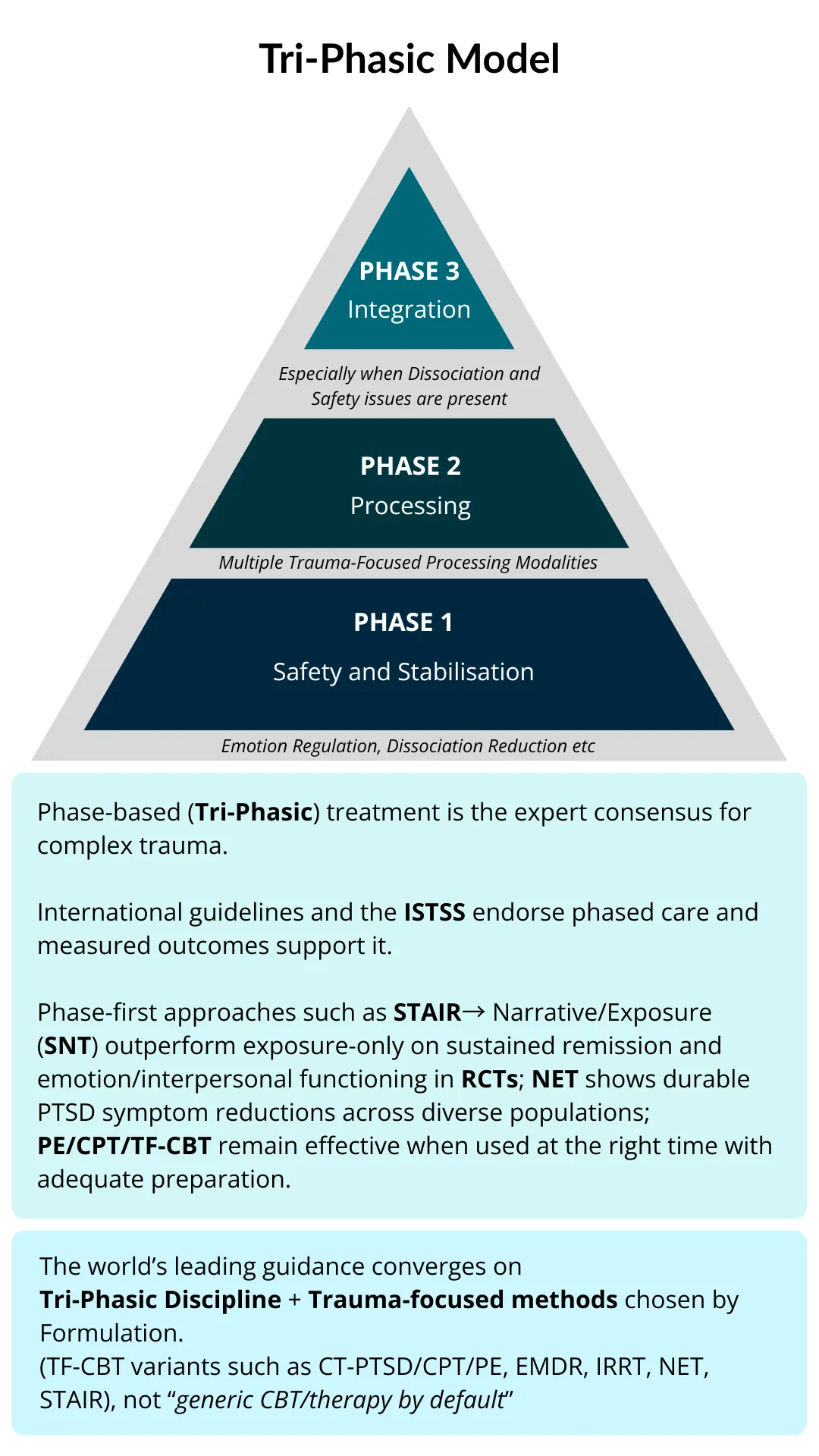
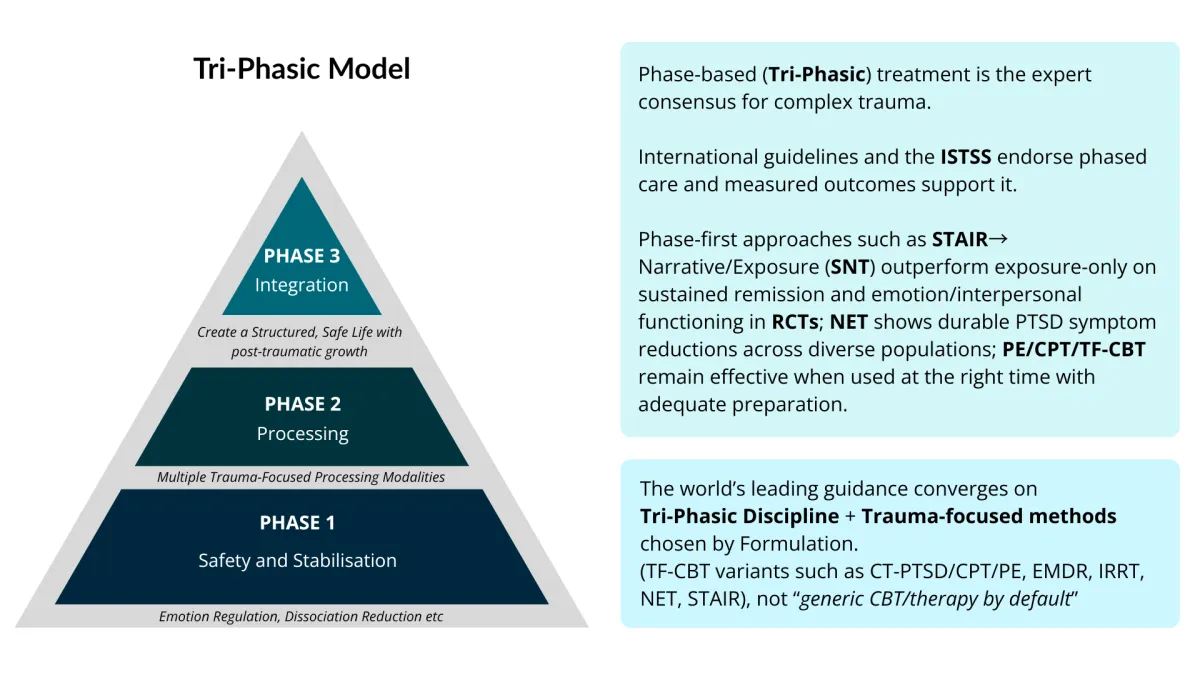
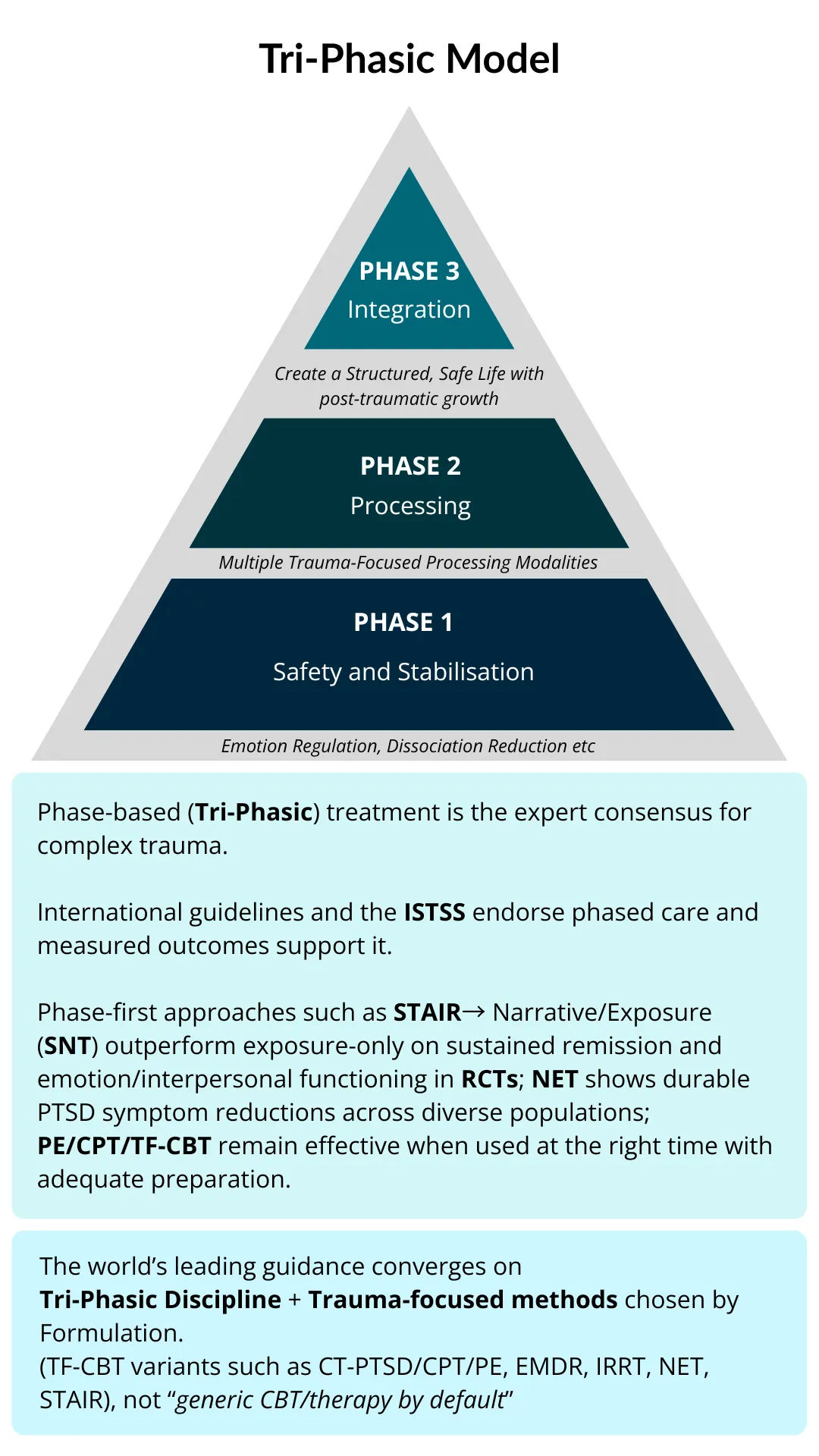
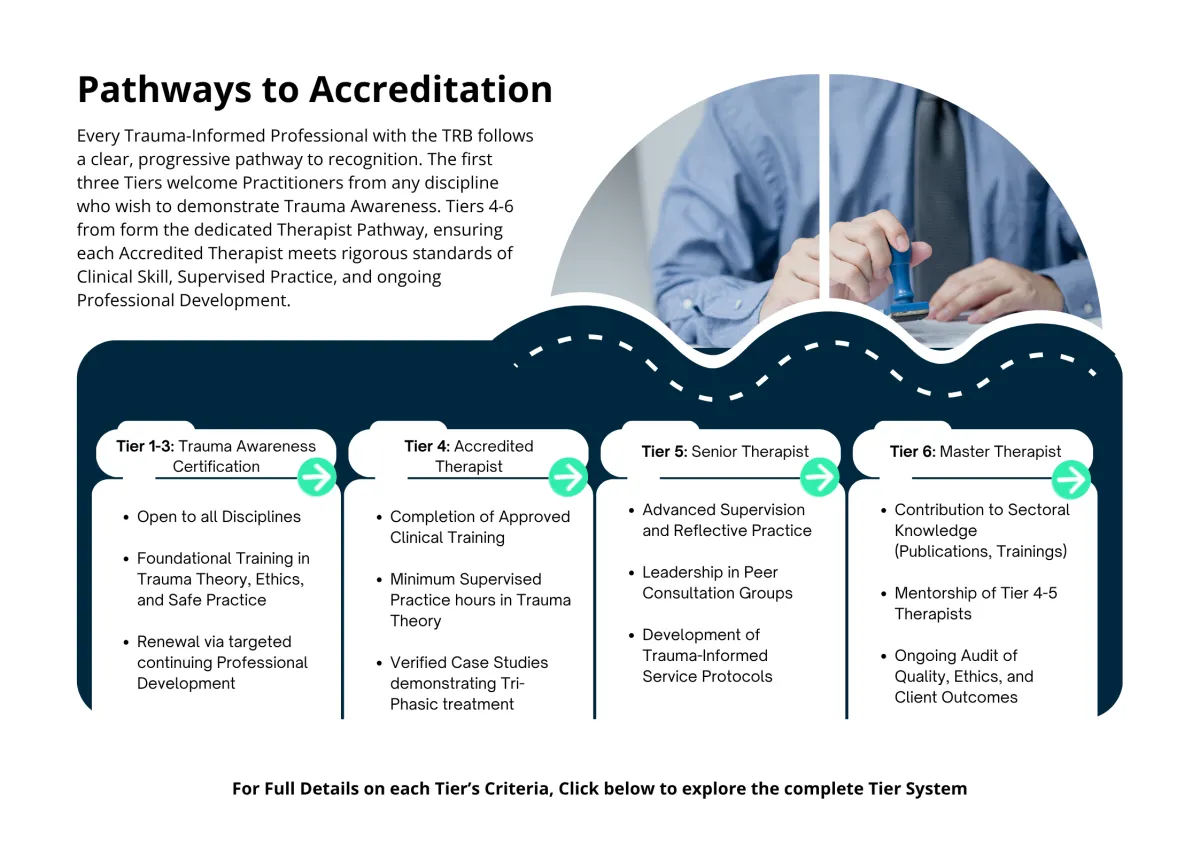
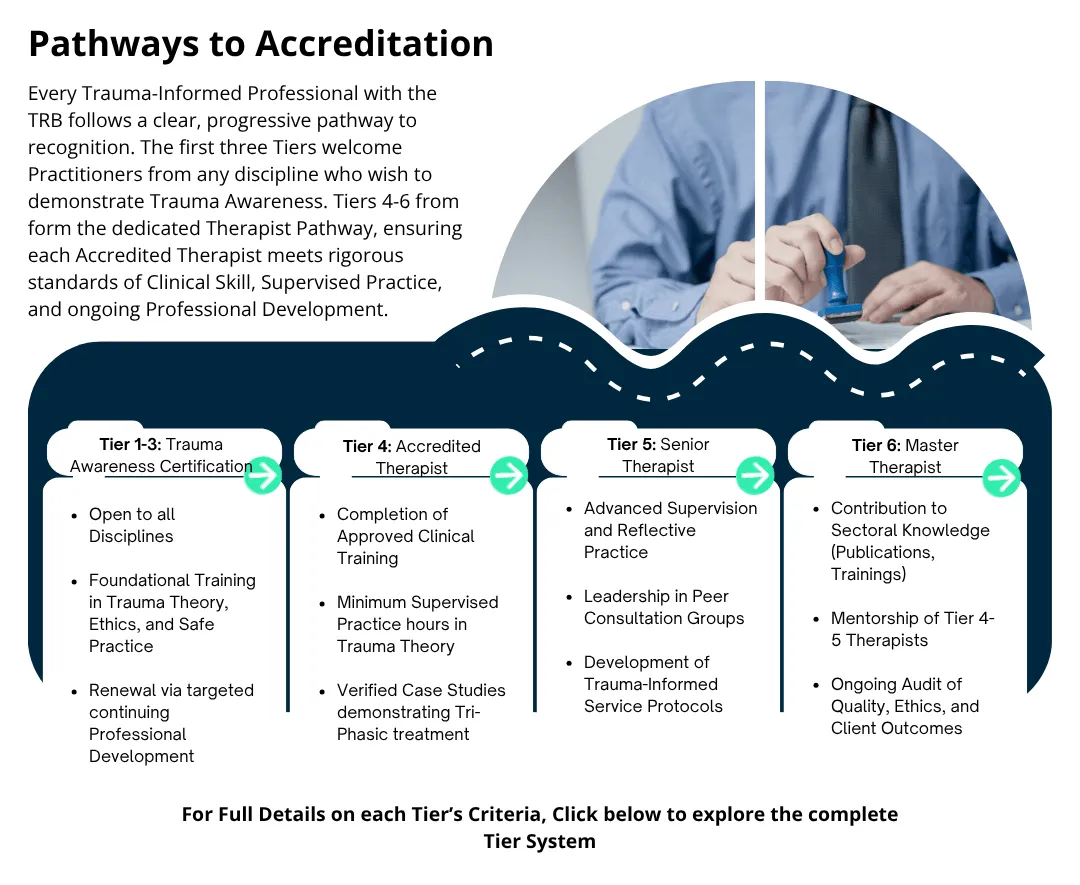
Why Accreditation Matters
Without TRB Accreditation
Therapists lack a consistent trauma-informed framework, increasing the risk of misdiagnosing complex trauma presentations
Generic approaches can inadvertently retraumatize clients by failing to ensure emotional safety and containment
Practitioners remain vulnerable to complaints, negligence claims, and have no formal way to evidence trauma expertise
With TRB Accreditation
Accreditation verifies trauma-focused competence, building trust with clients, insurers, and clinical teams
Operating within a structured regulation framework reduces the likelihood of complaints, negligence claims, and regulatory sanctions
Accredited status elevates professional prestige and demonstrates commitment to the UK’s highest standards of trauma-informed practice
Join the TRB: Where Your Discipline Is regulated
The Trauma Response Board (TRB) is more than a membership - it’s a professional network committed to safeguarding the public by supporting those who serve it. In disciplines where trauma and ethical complexity are part of daily practice, TRB recognises the critical role professionals play in upholding trust, safety, and accountability.
Claim your CPD funding through us
Ready to be witnessed, accredited, and supported?
Annual Membership Includes;
Access to tailored Trauma Focused Therapist CPD packages
Priority funding eligibility
Digital badge accreditation
Invitations to TRB events and forums
Recognition in our published research archive
TRB Public Register Representation
Have You Experienced Trauma, Burnout, or Vicarious Exposure?
If you’re a therapist who has:
Absorbed trauma through your work
Carried vicarious exposure from distressing case stories
Endured burnout, compassion fatigue, or emotional shutdown
Managed your own healing journey while holding space for others
At the the TRB, we honour the reality that regulation begins within. That’s why we’ve partnered with the Trauma Recovery Education Centre (TREC) - a sanctuary for trauma-affected individuals seeking restoration, containment, and community
While TREC’s programs aren’t yet tailored specifically for legal professionals, they offer powerful tools for:
Somatic regulation and emotional hygiene
Neuroscience-informed trauma recovery methods designed for practitioner resilience
Memory-mapping and closure exercises to process vicarious impacts and unburden your practice
Community support with others who understand
TRB members receive exclusive discounted access to all TREC courses and community spaces

Join the TRB
Lead every session with Trauma-Focused Credibility
Don’t risk misunderstanding - get TRB accredited
Join the TRB Mailing List
Receive trauma-informed insights, practitioner updates, and exclusive newsletters directly to your inbox

© 2026 Trauma Regulation Board - All Rights Reserved │ Privacy Policy │Terms & Conditions
The Trauma Regulation Board operates under a non-exclusive licence from The Fairhurst Foundation LLC for the use of all trauma frameworks, models, assessment tools and educational content.
